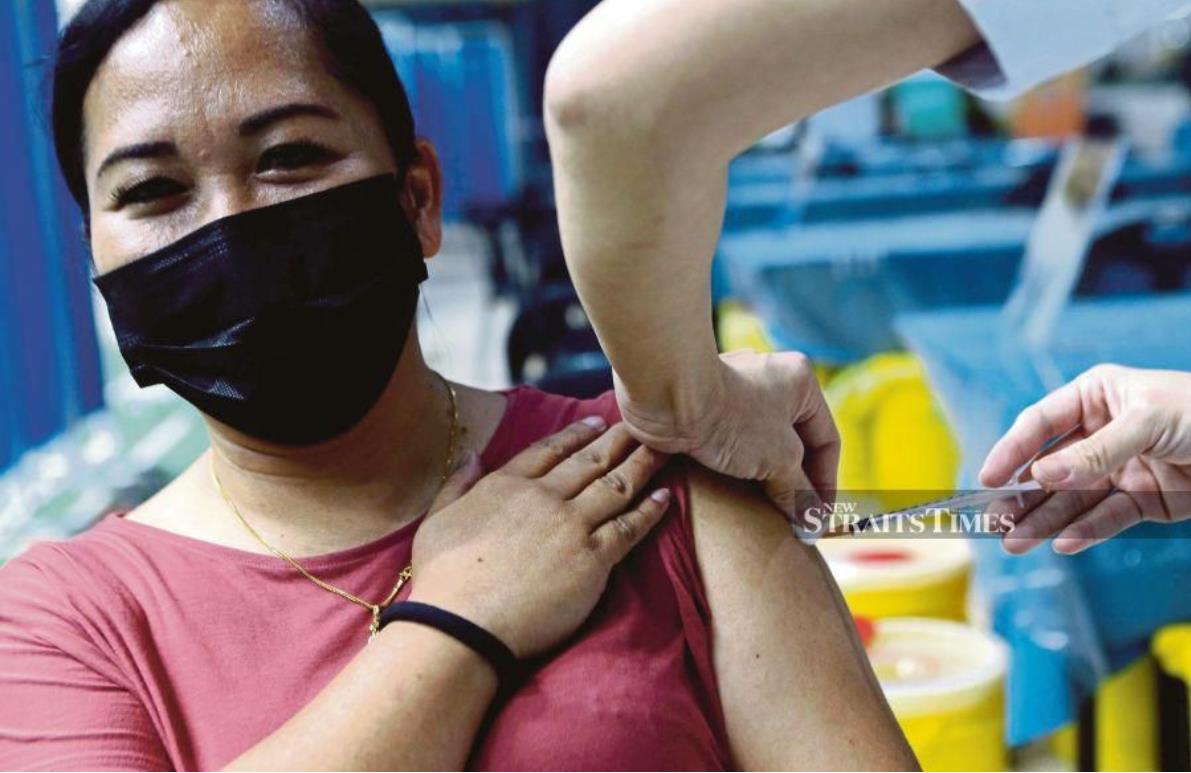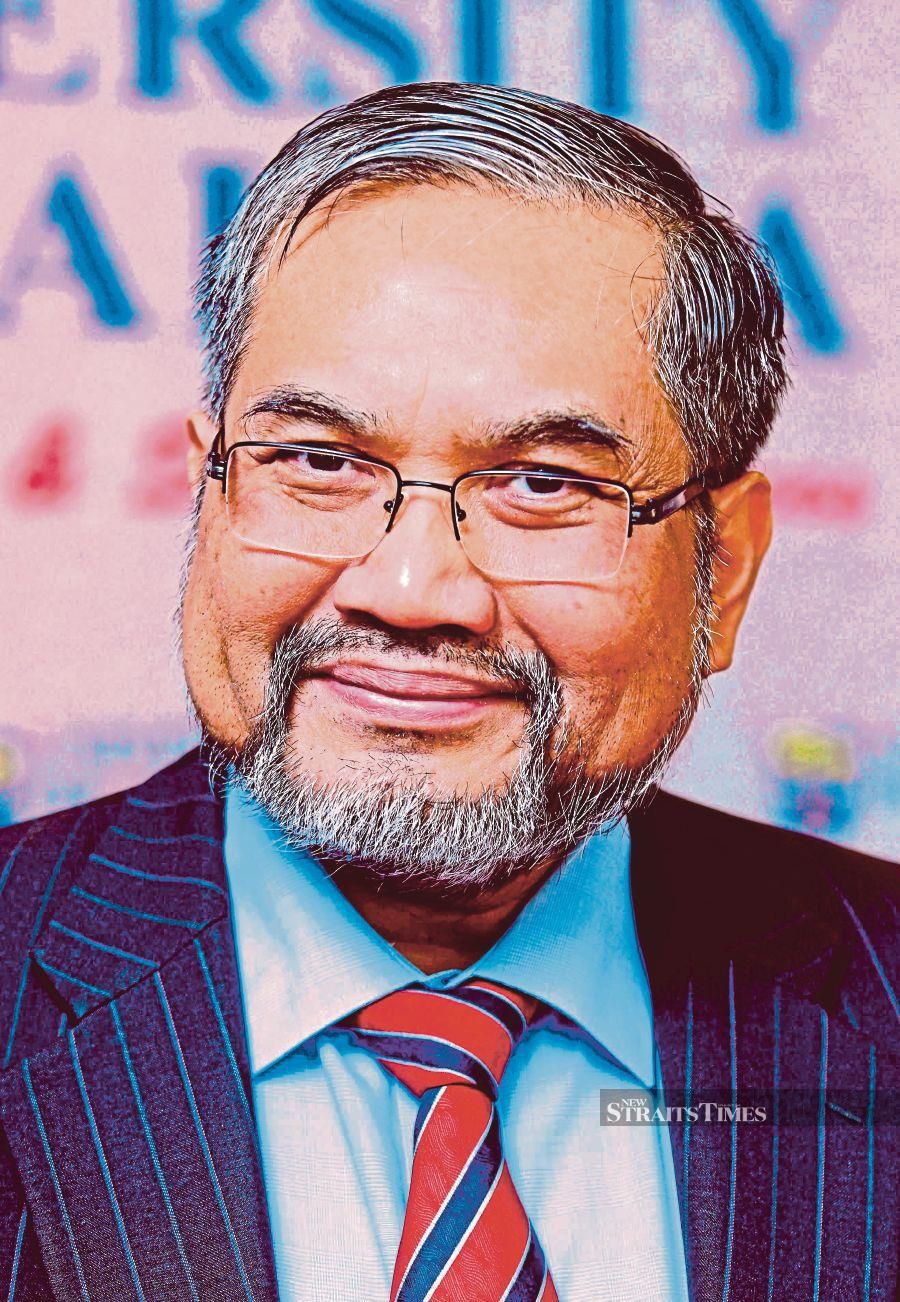Mixing vaccines: Experts urge caution

By Tharanya Arumugam - April 16, 2021 @ 9:10am
Mixing Covid-19 vaccines could improve effectiveness against current variants and offer protection against newer variants of the virus, medical experts said.
They, however, cautioned that countries should not be hasty to mix and match as there is no available safety and efficacy data to support the move.
Epidemiologist Professor Datuk Dr Awang Bulgiba Awang Mahmud said besides boosting effectiveness, mixing vaccines might also lead to broader B- and T-cell immunity and possible avoidance of vector immunity.
However, he said, there were possible disadvantages. For instance, different vaccines work against different parts of the virus so the "prime" first dose might not target the same part of the spike protein as the "boost" second dose from a different vaccine.
YOU MAY ALSO LIKE
EU could see first Covid-19 vaccinations in early 2021
AstraZeneca promises Covid vaccine at cost price worldwide
Covid-19 vaccines: Logistics may see Pfizer in urban areas, AstraZeneca in rural areas [NSTTV]
Khairy on vaccines: Trust in science, not conspiracy theories
This, he said, might result in sub-optimal immunity.
"Besides, the vaccination programme will need to continue for some time with the attendant logistic issues.
"We are stepping into unknown territory here, as we will be unsure whether there will be an interaction between the older and newer vaccines.
"This will give rise to more ammunition for anti-vaxxers as it will indicate that the vaccination programme was not properly thought through.
"Findings from an ongoing study called Com-Cov (by Oxford Vaccine Group, on whether mixing vaccines will work) will be very useful in helping nations decide whether mixing vaccines will work or not", he told the New Straits Times.
He was commenting on China's Centre for Disease Control and Prevention (CDC) that had, for the first time, discussed publicly the concerns over the effectiveness of Chinese jabs.
It was reported that CDC head Gao Fu had on Saturday told a forum that the agency was "considering how to solve the problem that the efficacy of existing vaccines was not high" by considering mixing vaccines and varying the sequence of doses.
Dr Awang Bulgiba, who is the Science, Technology and Innovation Ministry's Independent Covid-19 Vaccination Advisory Committee (ICVAC) head, said there had been academic discussion whether mixing vaccines might be required for the long term.

Professor Datuk Dr Awang Bulgiba Awang Mahmud
These concerns, he said, had arisen because some vaccines might not prove effective enough to substantially reduce transmission or serious disease rates.
Besides, there might be an insufficient degree of herd immunity due to vaccine hesitancy caused by adverse publicity for some vaccines, he said.
Additionally, he said, some vaccines might not be effective enough against newer variants like the B.1351 (South Africa) and B.1.429 (California).
Vector immunity might develop in viral vector-based vaccines, thereby rendering the vectors ineffective in delivering the spike protein code into human cells, and some vaccines might be unsuitable for some people due to severe side effects, he noted.
"What the medical expert from China meant by his statement is unclear as there are insufficient details on this.
"The United Kingdom Joint Committee on Vaccination and Immunisation in its advisory on Dec 30 last year had expressly mentioned that first and second doses of whatever vaccines being given in the UK must be from the same type.
"However, adding a third dose from another type of vaccine may be an option that countries might consider, especially when the conditions that I mentioned above happen."
Dr Awang Bulgiba added that his concern had been about the trial results for some vaccines where, for example, he had not seen the full Phase 3 trials of vaccines from China and was unable to comment on their efficacy or side effects.
"There will be some logistic issues that will need to be considered, like whether we should mix vaccine doses for all types or for some types of vaccines.
"This will complicate matters and we will need to decide whether we will require mixing of vaccines for whom, how it should be carried out, the number of doses of particular vaccines, how to compute their dosing schedules, and the monitoring."
He called for the government to heed ICVAC's recommendation to establish a Voluntary Covid-19 Vaccination Registry where 50,000 vaccinees were to be recruited as volunteers and followed up for two years.
"They will be followed up to study and evaluate how long the immunity from the vaccination from different vaccines will last.
"We can also study whether mixing vaccines result in a better immune response (both humoral and cell immunity) than relying on a single vaccine type and we can determine who would be more likely to benefit from such mixing of vaccines."
Malaysia has to date approved the Pfizer-BioNTech, Sinovac and AstraZeneca vaccines for use in Malaysia.
Dr Awang Bulgiba said the government was also looking to procure the Gamaleya, CanSino and Johnson & Johnson vaccines.
"The reported efficacy of the Pfizer and Gamaleya vaccines are very high (above 90 per cent) while the efficacy of the AstraZeneca vaccine is quite good too (70 per cent) but the Phase 3 trial results of the Sinovac vaccine have not been published in a peer-reviewed journal that I know of.
"Efficacy is what happens in controlled clinical trials. To measure effectiveness, one needs to follow up with people who have been vaccinated, which is why the ICVAC has recommended the Voluntary Vaccination Registry.
"Effectiveness depends on factors like the prevalent variants, compliance with dosing schedules, level of humoral and cell immunity and whether non-pharmaceutical interventions are continued in tandem with vaccinations.
"This kind of follow-up is required for some time as we are venturing into unknown territory here."
Manipal University College Malaysia's Professor of Community and Occupational Medicine Dr G. Jayakumar said it was premature to mix two different vaccines.

Dr G. Jayakumar
The US Center for Disease Control and Prevention, he said, had discouraged people from mixing vaccines unless there were "exceptional situations", such as a shortage of the vaccine they received first because of production or distribution hiccups.
In the UK, Public Health England had also taken a similar position, he said.
"Global scarcity of the Covid-19 vaccine is pushing the mix-and-match issue to the fore.
"There are trials being conducted in a few countries to look into the efficacy of mixing two different vaccines.
"In England, the AstraZeneca and Pfizer-BioNTech vaccines are being researched while in Russia, their Sputnik V vaccine is matched with a booster dose of a similar vaccine made by AstraZeneca, and the University of Oxford is looking into the rationale of mixing of different Covid-19 vaccines.
"These trials are being conducted to ascertain how well people's immune systems respond once they're 'primed' with one type of vaccine and then boosted with another. The trials are in an infantile stage and it is not clear whether it will be helpful."
Malaysia should continue with the planned National Covid-19 Immunisation Programme protocol until there were fresh guidelines with new data to indicate the mix-and-match approach was an effective solution, he added.
